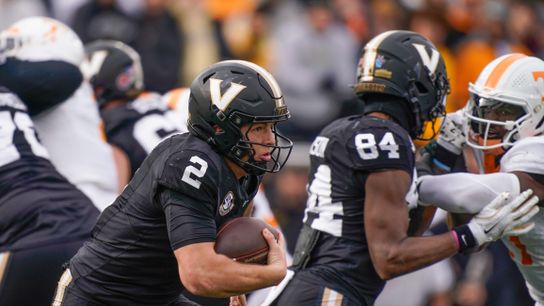It took all of five days for the inevitable to become reality.
Last week, Diego Pavia was granted an injunction that allowed the soon-to-be-former Vanderbilt quarterback another year of eligibility on the grounds that the NCAA should not be allowed to count his two years at New Mexico Military Institute, a junior college, against his NCAA eligibility.
That ruling only applied to Pavia but the implication was obvious, and on Monday the NCAA Division I Board of Directors granted a blanket waiver to any athletes who attended a non-NCAA school to remain eligible for 2025-26 if they otherwise would have exhausted their eligibility in 2024-25.
From the NCAA:
“The NCAA Division I Board of Directors granted a waiver to permit student-athletes who attended and competed at a non-NCAA school for one or more years to remain eligible and compete in 2025-26,” the NCAA memo reads, “if those student-athletes would have otherwise used their final season of competition during the 2024-25 academic year, and meet all other eligibility requirements (e.g., progress toward degree, five-year period of eligibility).”
The NCAA's statement on Monday did not state that all junior college athletes will not have their eligibility count against them. For now. For the time being, the waiver applies only to those who, like Pavia, would have seen their eligibility expire and their college careers end.
Florida State WR Malik Benson tells ESPN he plays to enter the NCAA transfer portal and take advantage of the extra year allowed to junior college players, he tells ESPN. @Leek_leek5 spent a year at Alabama in 2023 and two years at Hutchinson Community College prior. pic.twitter.com/lqVPthMBlb
— Pete Thamel (@PeteThamel) December 23, 2024
But one can imagine such a day is coming, and when that day arrives it will become even more difficult for high school seniors -- who already have to compete against transfers -- to win scholarships against 20-year-olds who, in the NCAA's eyes following a court ruling -- will officially be considered true freshmen.
In the meantime, though, the NCAA is appealing the Pavia case while also studying its own rules to form a policy that is “sustainable and can withstand scrutiny,” -- i.e., not get the organization sued into oblivion. That could mean granting all athletes the ability to play for five seasons.
As always, stay tuned to The Scoop for the latest.
